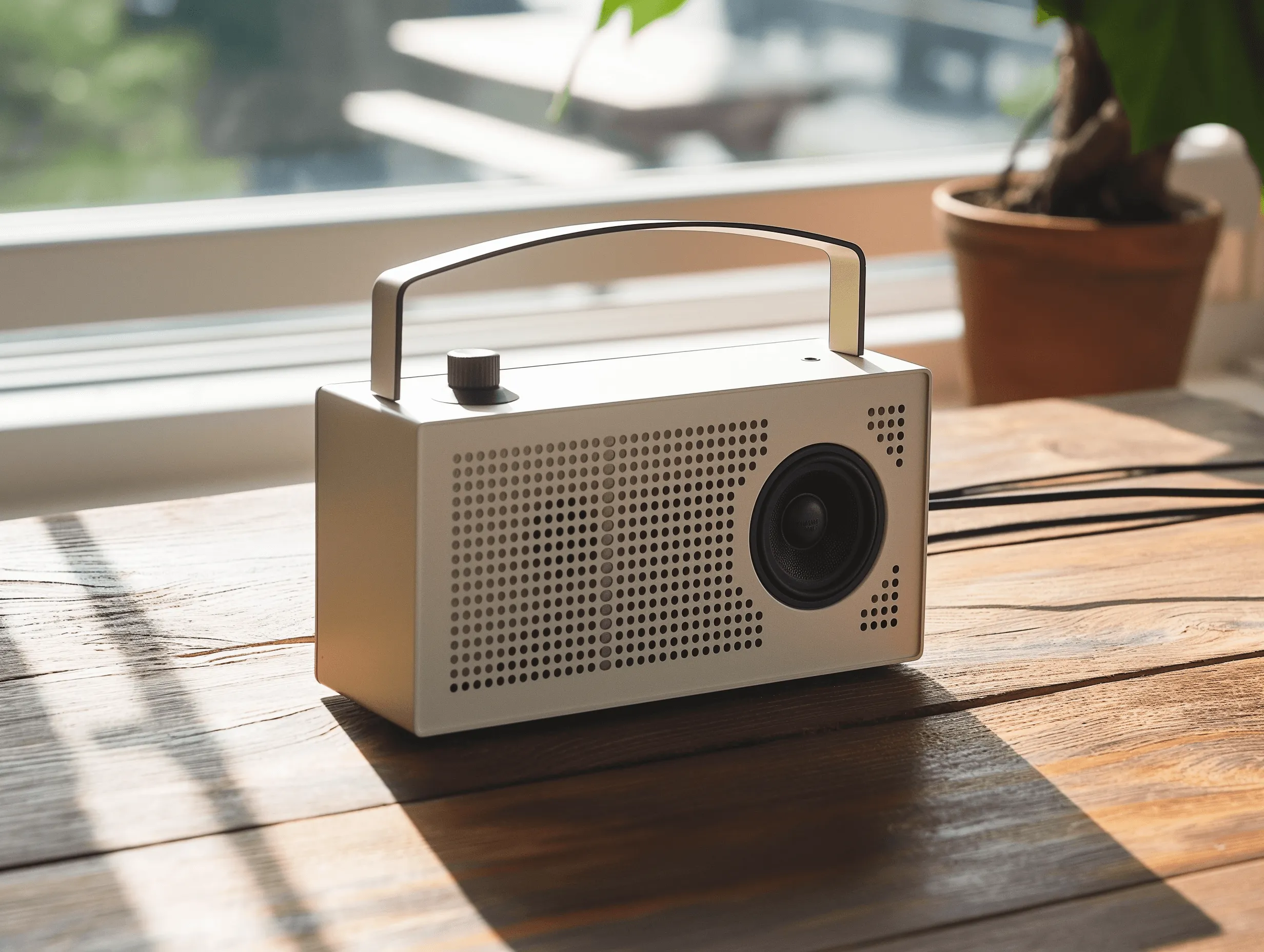
Future‑Proof on a Student Budget: Gadget Tips
Your laptop's making that weird whirring sound again, your phone battery dies faster than your motivation during finals week, and somehow you're supposed to make everything last until graduation (and beyond) without eating ramen for every meal 😅 Here's the thing - being a student doesn't mean you have to sacrifice having decent tech that'll actually serve you well into your career.
I've been there, trust me. Watching friends blow their entire semester budget on the latest iPhone while I'm over here with a cracked screen held together by a prayer and some creative case positioning. But here's what I learned after years of trial and error: smart gadget choices aren't about having the newest everything - they're about understanding what'll actually last and grow with you.
The Real Cost of Cheap Tech (Spoiler: It's Not Actually Cheap)
Let's be real about something most people don't want to admit - that $50 tablet you found on sale? It's gonna cost you way more than $500 in the long run. I used to think I was being so financially responsible buying the cheapest option available. Plot twist: I wasn't.
Here's what actually happens when you go ultra-budget. That cheap laptop starts lagging within six months, the battery swells up like a balloon, and suddenly you're shopping for a replacement while trying to recover files from a device that crashes every time you breathe on it wrong. Meanwhile, your friend who spent twice as much three years ago is still cruising along with zero issues.
The sweet spot? Mid-range devices from reputable brands, bought at the right time. Think of it as the difference between fast fashion and investment pieces, but for tech.
What "Future-Proof" Actually Means
Future-proofing isn't about predicting what technology will look like in 2030 (honestly, who knows at this point). It's about choosing devices that can adapt and grow with changing software demands without becoming paperweights.
A truly future-proof device has upgradeable components, receives regular software updates, and comes from a company with a track record of supporting older models. It's like dating someone with emotional intelligence - they're gonna handle whatever life throws at them way better than someone who falls apart at the first sign of stress.
The Student's Smart Shopping Strategy
Timing is everything when you're working with a tight budget. I've discovered that the best deals happen during specific windows throughout the year, and it's not always when you'd expect.
Back-to-school sales are obvious, but they're also when everyone else is shopping. The real gems? End of fiscal year clearances (usually around March), post-holiday returns that get refurbished, and the sweet spot right before new models launch when retailers want to clear inventory.
Refurbished: Your Secret Weapon
Okay, I need to evangelize about refurbished tech for a hot minute because this literally changed my entire relationship with technology. Manufacturer-refurbished devices (not third-party, that's important) are basically new devices that someone returned within the return window.
These come with the same warranty as new devices, often at 30-40% off retail price. I'm talking about devices that might have been opened, tested, and repackaged. Sometimes the only "issue" was damaged packaging during shipping. It's like getting a designer dress that someone tried on but never wore out - technically "used" but practically perfect.
Essential Gadgets That Actually Matter
Here's where I'm gonna save you from the gadget overwhelm that hits every freshman. You don't need seventeen different devices to succeed in school and set yourself up for post-graduation life. You need the right three or four things that work well together.
The Laptop That'll Last
Your laptop is your everything - research station, entertainment center, creative workspace, and probably your lifeline to sanity during those 2 AM study sessions. This is not the place to skimp, but it's also not where you need to go crazy.
Look for something with at least 8GB of RAM (16GB if you can swing it), an SSD instead of a traditional hard drive, and a processor that's no more than two generations old. The brand matters less than these specs, tbh. A two-year-old ThinkPad with great specs will serve you better than a brand-new budget laptop with 4GB of RAM.
Pro tip from someone who learned this the hard way: prioritize battery life and build quality over flashy features. That touchscreen might seem cool, but it drains battery and adds cost without much practical benefit for most students.
Phone Strategy: The Two-Year Rule
Here's my controversial take: you don't need the latest iPhone or Galaxy. What you need is a phone that's maybe two generations behind the current model, bought from a carrier during one of their trade-in promotions.
Two-year-old flagship phones still have years of software support left, cameras that are more than good enough for anything you'll realistically need, and performance that won't make you want to throw the device across the room. Plus, cases and accessories are abundant and cheap by that point.
Audio That Doesn't Suck
Good audio gear is one of those things that seems like a luxury until you realize how much of your day involves listening to something. Lectures, music, calls, videos - your ears deserve better than those free earbuds that came with your phone three phones ago.
Instead of chasing the latest wireless earbuds that'll cost you $200+, look for wired headphones from audio companies (not tech companies trying to do audio). You can get genuinely excellent sound quality for under $100 if you know what to look for. And btw, they'll never run out of battery at the worst possible moment.
The Ecosystem Trap (And How to Avoid It)
Apple wants you to buy everything Apple. Google wants you in their world. Microsoft is making their play too. But here's what they don't tell you - you don't have to pick just one ecosystem, especially when you're budget-conscious.
Mix and match based on what gives you the best value. Maybe that's an iPhone with a Windows laptop and a Google Chromebook for basic tasks. Or an Android phone with a MacBook you got a great deal on. The key is making sure your essential apps and services work across whatever combination you choose.
Cloud Storage: Your Safety Net
This might be the most important advice in this entire article: invest in proper cloud storage and backup solutions. I don't care how careful you are - devices break, get stolen, or decide to corrupt their hard drives at the worst possible moment.
Most cloud services offer student discounts, and some are surprisingly generous. Google, Microsoft, and Apple all have educational pricing that makes their premium tiers actually affordable. Think of it as insurance for your digital life - you'll never regret having it, but you'll definitely regret not having it when disaster strikes.
Accessories That Actually Add Value
The accessory market is full of overpriced nonsense designed to separate you from your money. But there are a few things that genuinely improve your tech experience and help protect your investments.
A good laptop stand improves ergonomics and helps with heat management, potentially extending your device's lifespan. A quality surge protector with USB ports gives you peace of mind and convenience. A portable charger means you're never that person desperately searching for an outlet in the library.
Protection Without the Premium
Phone cases and laptop sleeves don't need to cost half as much as the device they're protecting. The $5 case from Amazon often provides the same drop protection as the $50 designer one. What matters is coverage, material quality, and fit - not brand recognition.
Screen protectors are similar. The expensive ones aren't necessarily better at preventing scratches or cracks. Look for tempered glass options with good reviews rather than whatever the phone store is pushing that day.
Maintenance: Making Everything Last Longer
Here's something they should teach in freshman orientation but never do: how to actually take care of your tech so it lasts. It's not complicated, but it makes a huge difference in how long your devices stay functional and fast.
Keep your software updated, restart your devices regularly, and don't let your storage get completely full. Clean your screens and keyboards occasionally. Don't leave devices in hot cars or freezing dorm rooms. Basic stuff, but I've seen so many people ignore these simple steps and then wonder why their year-old laptop is already acting ancient.
Battery Health is Everything
Your device's battery is basically its lifespan timer. Treat it well, and your gadgets will serve you faithfully for years. Abuse it, and you'll be tethered to wall outlets or shopping for replacements way sooner than necessary.
Don't let batteries completely drain regularly, avoid extreme temperatures, and use the original charger when possible. For laptops, don't keep them plugged in 24/7 if you can help it. These habits literally add years to your device's useful life.
When to Upgrade (And When to Wait)
The tech industry wants you to upgrade constantly, but that's not realistic or necessary on a student budget. Learning when to upgrade versus when to stick with what you have is a crucial skill that'll serve you well beyond college.
Upgrade when your current device genuinely can't do what you need it to do, not when something newer and shinier comes out. If your laptop takes five minutes to boot up and crashes during video calls, that's upgrade time. If it works fine but doesn't have the latest processor, you can probably wait.
The Security Factor
One exception to the "if it works, keep it" rule: security updates. When your device stops receiving security patches, it becomes a liability. This is especially important for anything you use for banking, shopping, or storing personal information.
Most manufacturers provide security updates for 3-5 years after release. Plan your upgrade timeline around this, not around marketing cycles or peer pressure.
Building Your Tech Timeline
Think of your gadget purchases as a strategic plan rather than random shopping decisions. Map out what you need when, and plan purchases around sales cycles and your financial aid schedule.
Maybe you get a solid laptop freshman year that'll last through graduation, add a good phone sophomore year, and invest in professional accessories junior year as you start thinking about internships and job applications. Having a plan prevents impulse purchases and ensures you're investing in things that actually support your goals.
FAQ: Student Gadget Questions
Should I buy extended warranties on my devices?
Generally, no. Extended warranties are profit centers for retailers, not good deals for consumers. Instead, put that money into a "device emergency fund" and practice good device care. You'll come out ahead in most cases.
Is it worth waiting for student discounts?
Absolutely, but don't wait forever. Many companies offer year-round student pricing through services like UNiDAYS or Student Beans. The discounts aren't always huge, but they add up, especially on software and services.
How much should I spend on a laptop as a freshman?
Aim for the $600-$900 range for something that'll last four years. Less than that and you're likely to need an upgrade before graduation. More than that and you're probably paying for features you don't need yet.
Are gaming laptops worth it for students?
Only if you're actually going to game on them regularly. Gaming laptops are heavy, have poor battery life, and cost more than equivalent non-gaming machines. If you game occasionally, consider a regular laptop plus a gaming console or cloud gaming service.
Should I buy tech right before school starts?
Back-to-school season has good deals, but also high demand and limited inventory. If you can shop a month or two earlier, you'll often find better selection and sometimes better prices as retailers try to move inventory.
Final Thoughts
Look, being a student means making tough financial choices, but it doesn't mean you have to suffer with terrible tech that makes everything harder than it needs to be. The key is being strategic about what you buy, when you buy it, and how you take care of it once you have it.
Focus on the essentials, buy quality when it matters, and don't get caught up in the hype cycle of constant upgrades. Your future self will thank you when you're entering the job market with reliable devices that still have years of life left in them, instead of scrambling to replace everything right when you can least afford it.
Remember, the best gadget is the one that disappears into the background and just works when you need it to. That's what you're really investing in - reliability, longevity, and the peace of mind that comes with having tools that support your goals instead of creating obstacles 💪
.png)
.jpg)











Comments: